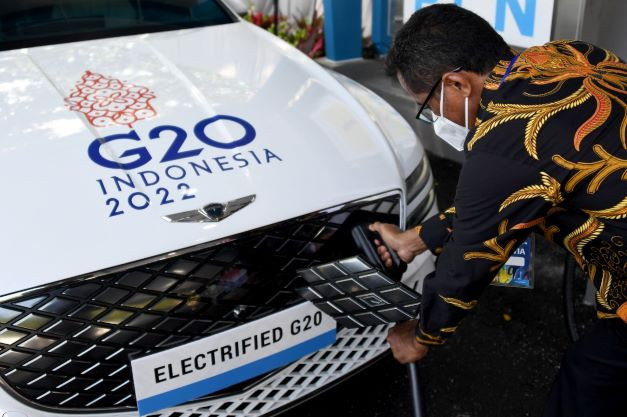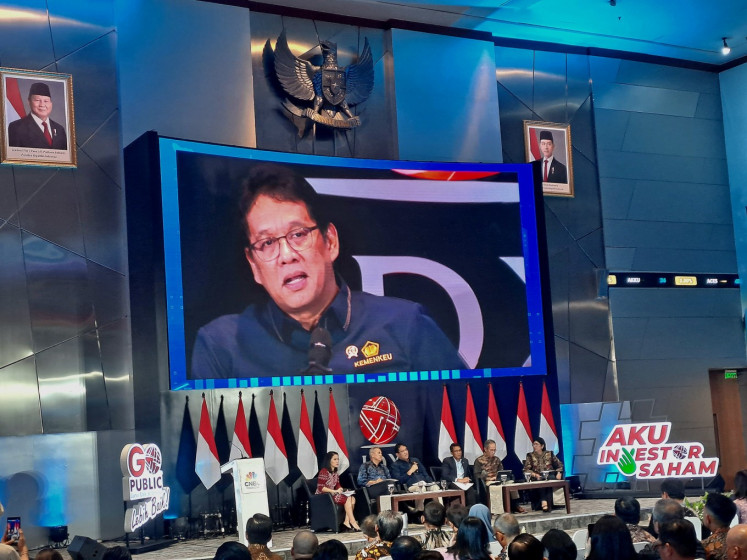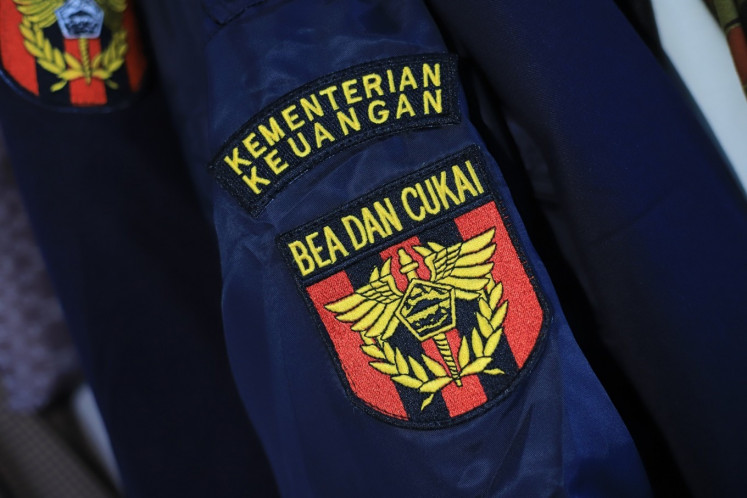Popular Reads
Top Results
Can't find what you're looking for?
View all search resultsPopular Reads
Top Results
Can't find what you're looking for?
View all search resultsIndonesia to introduce EV purchase incentives in March
Indonesia may start implementing an incentive scheme for the purchase of electric vehicles (EVs) in March, a minister has said, in a bid to slash fuel oil imports and boost EV adoption at home.
Change text size
Gift Premium Articles
to Anyone
T
he government plans to introduce incentives on electric vehicle (EV) purchases in March in a bid to boost EV adoption, while helping the country to reduce consumption of costly imported fuel.
Energy and Mineral Resources Minister Arifin Tasrif said the policy would differ between electric cars and motorbikes with the former to come with tax incentives, while the latter in the form of cash, amounting to Rp 7 million (US$461.83).
The incentive for two-wheelers would be available for both conventional motorbike conversion and the purchase of new electric motorbikes, he said.
The latest development also marked a shift from a previous announcement that the government considered subsidizing both electric cars and motorbikes altogether.
“Earlier, we discussed the implementation of EV [subsidies]. We expect the implementation to take off in March,” he said as quoted by Kompas.com.
Arifin’s statements came after a closed meeting with Transportation Minister Budi Karya Sumadi and the Coordinating Maritime Affairs and Investment Minister Luhut Pandjaitan in Jakarta.
Read also: EV producers upbeat over planned purchase subsidies
Indonesia’s EV sales reached 1,587 units year-to-date in May 2022, almost double the 693 units sold a year earlier, according to a report published by ING Think, the office of economic and financial analysis at a Dutch multinational bank.
But the number of EVs is still minuscule at 33,800 units as of November last year, energy ministry data show, a mere 0.02 percent of the around 152 million registered vehicles currently in Indonesia.
A Fitch Solutions country risk and industry research forecast Indonesia’s EV fleet would surge in the coming years on the back of the government’s supportive policy, but adoption is projected to remain below 1 percent of the total registered vehicles in the next nine years.
Read also: New car emissions tax in effect, but poised to little spur EV demand
Indonesia has also rolled out a revised policy on the luxury tax (PPnBM) to push its adoption in addition to its plan to start subsidizing EV purchases this year.
Luxury sales taxes on battery electric vehicles (BEVs) and plug-in hybrid electric vehicles (PHEVs) are now fully exempt from the luxury sales tax, a regulation that automakers expected to barely address the price gap between regular cars and eco-friendly cars, including electric cars.
Indonesia has long aimed to become a global hub for EV manufacturing and exports. The country has stepped up its policy to attract investment in the EV supply chain from mineral processing and battery manufacturing to carmakers.










